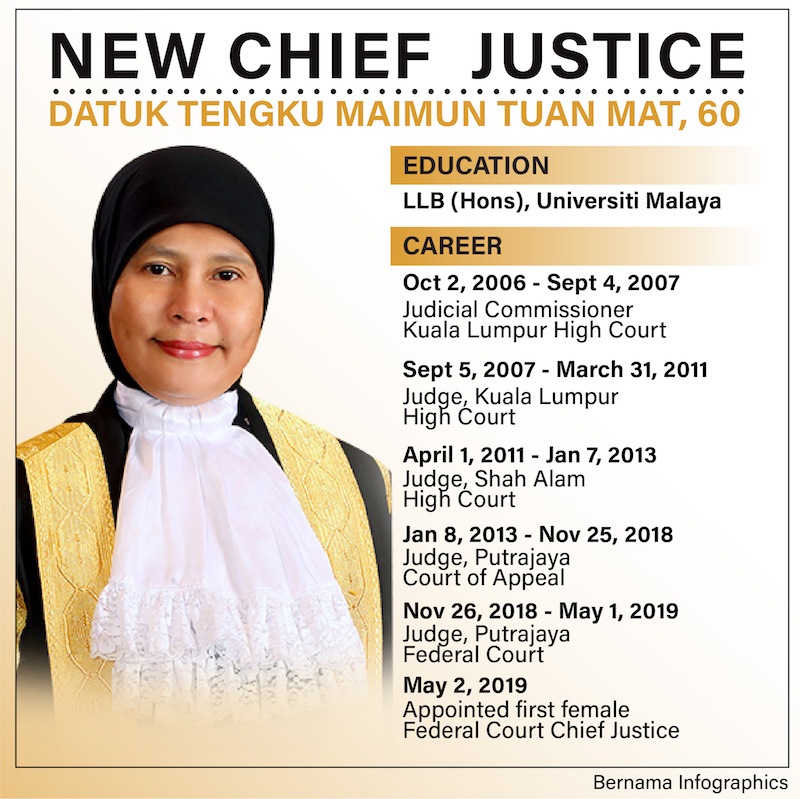PUTRAJAYA, May 6 — The ability to write dissenting judgements should not be the sole yardstick in evaluating the credibility of court judges, said Malaysia’s first female Chief Justice Datuk Tengku Maimun Tuan Mat.
Best remembered for two dissenting judgements she made while presiding over two high profile cases, Tengku Maimun pointed out that other evaluation metric must come into play in evaluating a judge’s performance.
“And I don’t think the criteria to give dissenting judgement is a criteria that is required, because to be appointed as a judge or to be promoted, the criteria is a lot. Definitely independence, ability to decide based on facts presented without taking into consideration other facts.
“That’s important. Integrity and definitely competence and having a fair, good knowledge of the law. So the question of writing dissenting judgements to me, not really. If by coincidence we have to, and it’s not always to me that you have to dissent.
“If a unanimous decision is needed, it does not mean that it’s not good. So we can’t make an evaluation based solely (on), if the judge has, or made a lot of dissenting judgements. That is not the criteria,” she said, adding that a judge’s ability to do so, does not automatically mean they are good.
Tengku Maimun was speaking to journalists in a special press conference at the Palace of Justice here, after receiving her appointment letter from the Yang di-Pertuan Agong.
Recently, Tengku Maimun was reportedly the sole judge in a three-person Court of Appeal panel in 2016 to have disagreed that DAP veteran Karpal Singh should be convicted with sedition.
She was alleged to be the only judge who held firm to her decision in spite of prior judicial interference attempts, but this claim by a sitting judge is currently under investigation.
Karpal was posthumously cleared of his name almost five years later in March this year, when the Federal Court unanimously acquitted him over his legal opinion as a lawyer and MP regarding the then Perak Sultan’s role in the 2009 Perak constitutional crisis.
Tengku Maimun was the dissenting judge in the Court of Appeal’s 2-1 ruling in December 2014, where she disagreed that the High Court was wrong to issue a court order to compel the Inspector-General of Police to find Hindu mother M. Indira Gandhi’s child that was abducted by her Muslim convert ex-husband. (The Federal Court in April 2016 ordered the IGP to track and arrest the ex-husband over his disobedience of court orders to return the child).
The judgements had earned her much public accolades.




















